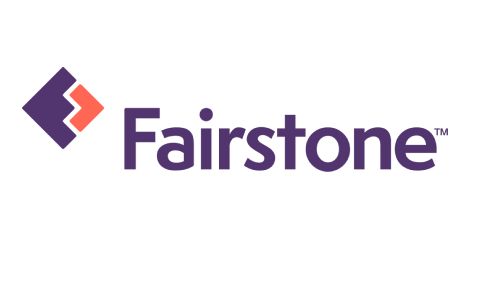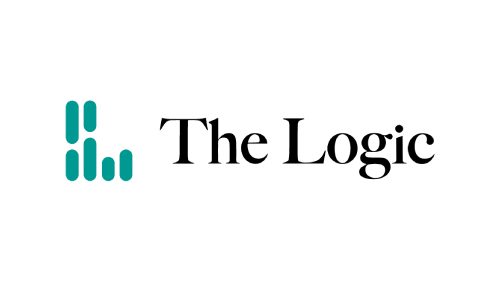An Interview with Stephen Smith
Abstract: In the 2024 Bankers Summit fireside chat, Stephen Smith, founder of First National, discussed his strategic vision behind acquisitions, including Canada Guarantee, Equitable Bank, and Home Capital. He highlighted how macroeconomic factors and consumer resilience shaped these investments, noting the importance of identifying opportunities during challenging times. Smith emphasized the synergies between Fairstone Bank and Home Capital following their merger, focusing on cross-selling opportunities and niche competition in Canada’s financial services industry. While acknowledging the competitive dominance of big banks, Smith downplayed the potential impact of open banking. He also expressed concern about Canada’s declining productivity and natural resources investment. His advice to entrepreneurs? Stay disciplined, persist, and seize opportunities in every era. Watch interview here. 👀
Register for the 2025 Bankers Summit to hear Stephen Smith on stage again.
Kevin: Good morning, everyone. Thank you for being here. Stephen, thank you for doing this. And on behalf of my business, I want to thank you for all the news you’ve generated over the last few years, even though some of it may have flown under the radar.
I’d like to start by taking us back to the origin of your acquisition journey over the past few years. First, with the acquisition of Home Capital, and now with the merger Gary mentioned. Can you walk us through your thought process? Is this part of a grand vision, or is it more ad hoc?
Stephen: No, it’s definitely part of a vision. I’ve always been a strong believer in the mortgage business, ever since founding First National back in 1988. I saw great potential in the mortgage market in those early years. However, the early 90s were particularly tough — probably the worst real estate and economic recession since World War II in Canada.
A pivotal but lesser-known acquisition for me was Canada Guarantee, which isn’t a consumer-facing brand. The opportunity arose around 2009-2010 when AIG was having serious issues. At that time, there was a prevailing narrative, not just in Canada but across North America, that the mortgage market was set to crash — from 2008 through 2012. And even now, some still believe it might crash.
However, I believed in the resilience of the Canadian consumer and saw Canada Guarantee as an opportunity. That was my first acquisition, which I saw as leveraging the strength of the Canadian mortgage market. Other acquisitions followed, like Equitable Bank, which at the time, was trading at five times earnings and at a discount to its book value. Andrew Moore, the CEO, has done an exceptional job turning Equitable Trust into EQ Bank, a challenger bank, and that was another staged investment.
In 2022, strategically through Smith Financial, I had positions in First National, Equitable Bank, and Canada Guarantee. Then someone suggested I look at Home Capital, which had gone through tough times in 2008 and 2017, almost facing a near-death experience. But like many banking challenges, it was a liquidity issue, not a solvency issue. By 2022, after their turnaround and solid performance, I saw that Home Capital represented good value. The stock was trading at $27, and we took it out at $44, which was a big win for shareholders.
The surprising part was that there wasn’t much competition for the acquisition, which I was relieved about. The Canadian mortgage market still has a hangover from the 2005-06 subprime crisis in the U.S., and it may take another generation to fully shake off that fear.
Once we acquired Home Capital, the next phase unfolded quicker than I expected. Fairstone Bank, which I also own, and Home Capital were incredibly complementary businesses — Home focused on single-family mortgages and Fairstone on consumer lending, with no product overlap. So, we made the decision to merge these businesses, and that was announced in March, with the hope of closing by the end of this year, possibly as early as October.
Kevin: With the merger, is the business model more about efficiencies, or are you seeking to expand market share against the big banks?
Stephen: It’s more about synergies. Fairstone has around $6 billion in assets and $300 million in net income. It’s an asset-light company, but it has 1.7 million customers, which presents a great opportunity to cross-sell deposit products. For example, we could offer Fairstone’s Walmart Rewards customers transaction accounts, creating a lot of value without needing to compete directly with the big banks.
Kevin: Speaking of competition, how do you view the financial services industry in Canada? It’s known for being dominated by the big banks, yet you’ve found ways to compete.
Stephen: I think there’s a misconception that because it’s a concentrated industry, there’s no competition. It’s very competitive. First National, for example, isn’t regulated the same way as the big banks, but it competes directly with them. The challenge is that smaller institutions like First National, Equitable, and Home Capital are under a different capital regime than the big banks, which forces us into different niches.
Kevin: Does the structure of the financial industry here demand a policy change to allow more competition, or is it up to clever entrepreneurs to find cracks in the fortress?
Stephen: It’s tough to say. Canadian banks have historically been strong, especially coming out of the 2008 financial crisis. They provide stability, but the capital requirements can act as a drag on growth and competition. It’s a delicate balance.
Kevin: What are your thoughts on open banking?
Stephen: I’m indifferent. While I know some in this room might see it as a game-changer, I don’t think it will have the big impact many expect. The big banks are tough competitors with strong products. Consumers may not like their banks, but they trust them, and that trust is hard to displace.
Kevin: Shifting to the broader economy, there’s a sense we might be heading into or are already in a recession. What’s your take?
Stephen: I’m concerned about Canada’s productivity and competitiveness, particularly in the natural resources sector. We’ve seen a decline in investment in mining and other resource industries since 2016, and that’s having long-term effects. The shift toward green energy is important, but we shouldn’t neglect our traditional strengths in natural resources.
Kevin: Lastly, what advice would Stephen Smith today give to Stephen Smith starting out 34 years ago?
Stephen: I’d say to persist. It’s important to have a good idea, but also be disciplined. It took years before First National started making money. The journey is tough, but every era presents new opportunities. The key is to work hard and stay focused.
Sign up for our Finance Summit Series




